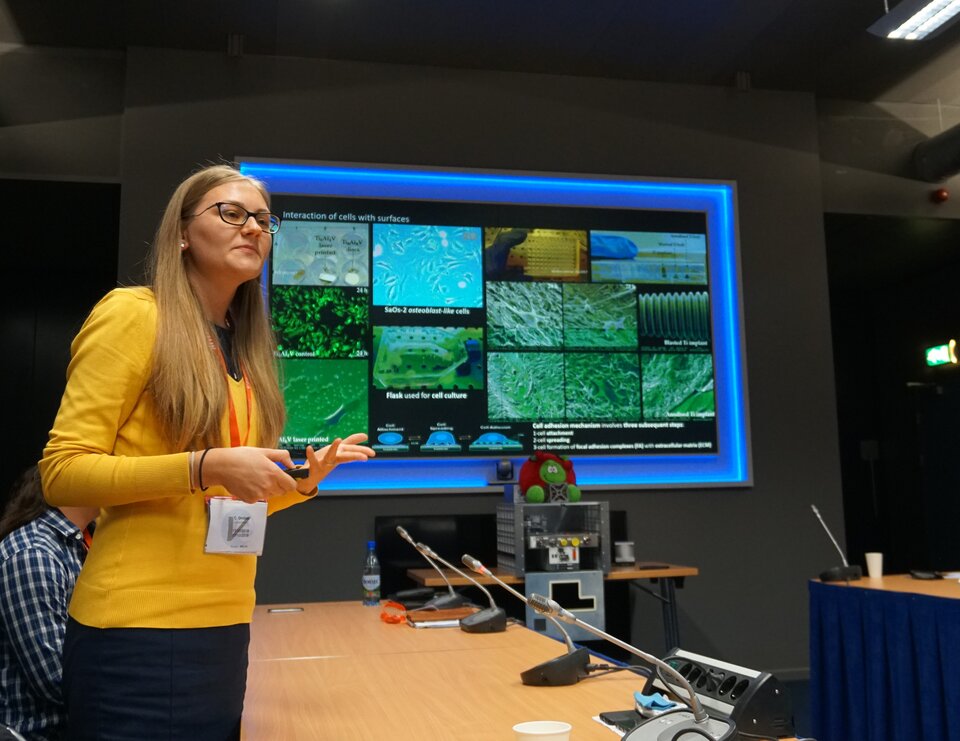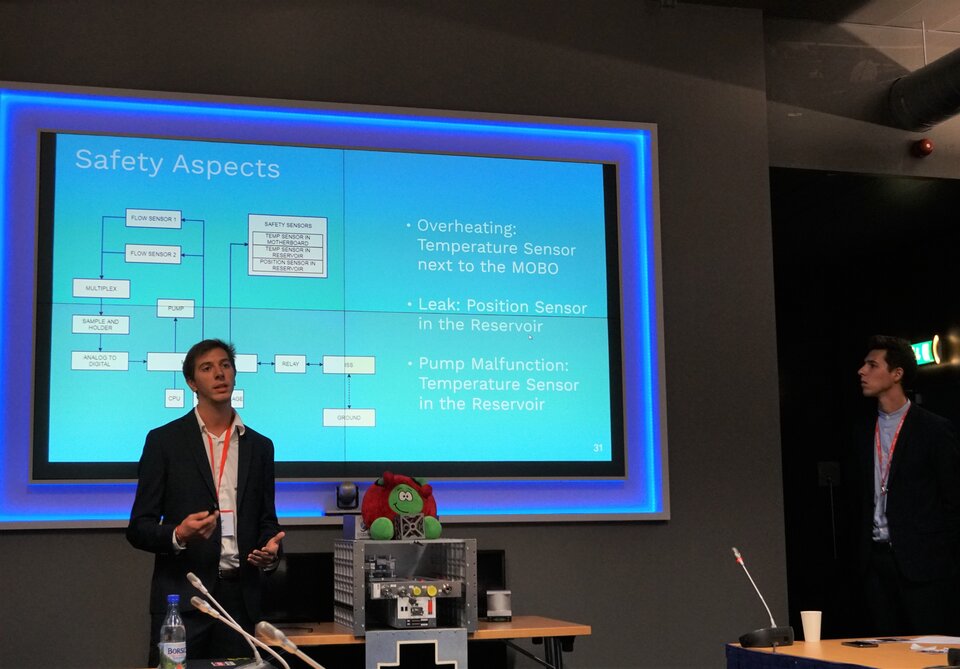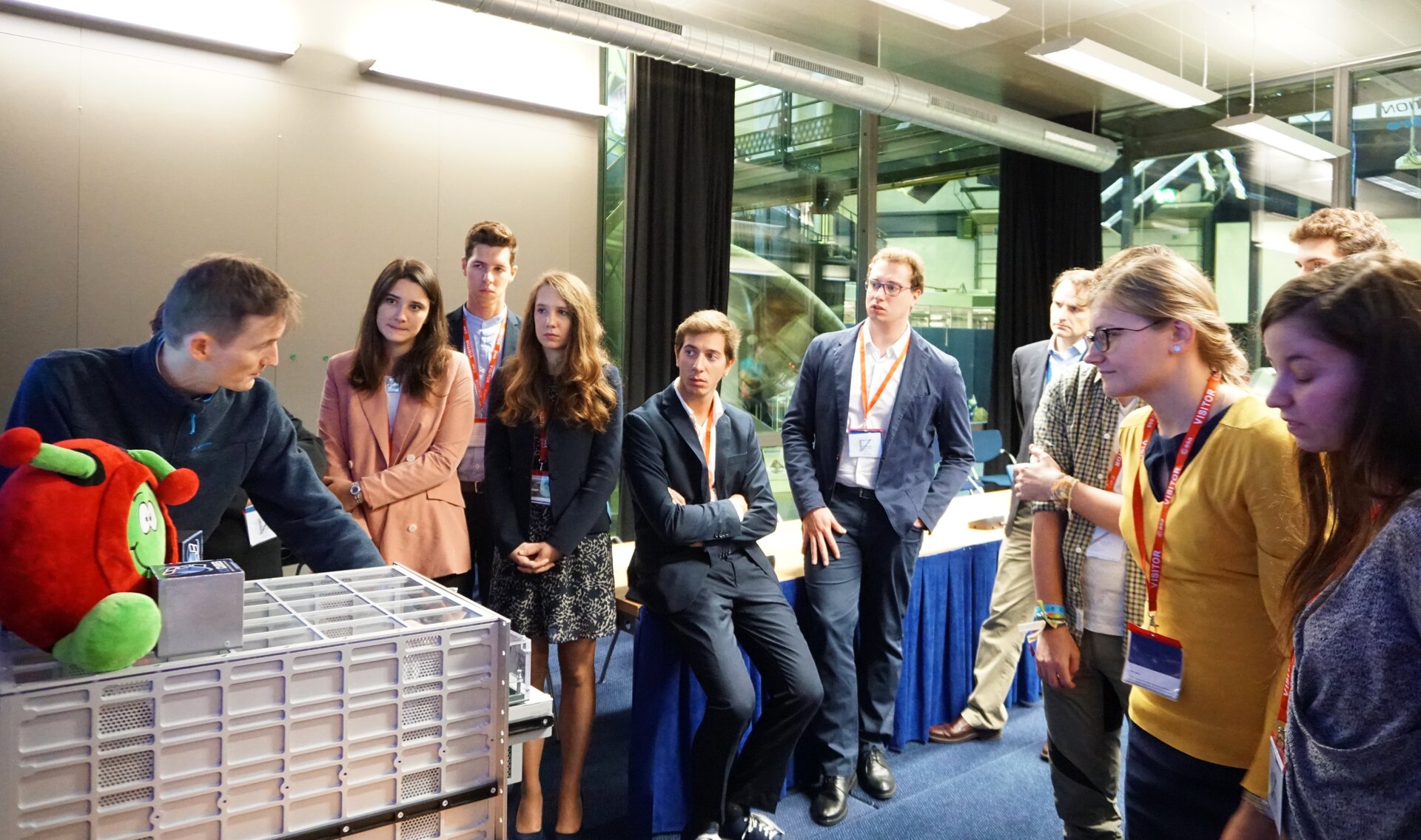ESA’s very first Orbit Your Thesis! selection workshop
Last week and for the very first time, ESA’s Education Office held a selection workshop for the new educational programme called Orbit Your Thesis! (OYT). Team SpaceMed from the University of Bucharest and the Politehnica University of Bucharest in Romania and team ISAE Aorta In Microgravity (AIM) from the University ISAE-SUPAERO in France competed against each other in order to win a place in the Orbit Your Thesis! 2019 programme.
ESA’s Education OYT is a new programme that offers master and PhD candidates the opportunity to fly a scientific experiment in the ICE Cubes facilityon board the International Space Station (ISS) for a period lasting up to 4 months. Within the ICE Cubes facility, operated by Space Applications Services (SpaceApps), scientists can conduct their experiments using Experiment Cubes. Within the Experiment Cubes, experimenters can conduct research on various topics, ranging from biology and chemistry to aerospace and technology demonstrations.
ESA’s Education Office launched a call for proposals last June. The call asked for master and PhD students from ESA Member States to formulate a team of at least six team members and submit a proposal related to designing, building and operating an experiment tailored for the ICE Cubes facililty. Teams interested in participating had to submit an accurately and completed set of documents, detailing the description of the experiments they intended to perform. After this phase, the selection board short-listed two teams – based on their eligibility, their need for the ISS environment, the quality of the proposal and the educational benefits. These teams were then given a week to complete a first draft of their technical documentation and invited to the selection workshop to present their experiment to the selection board, comprised of engineers and scientists from SpaceApps, ESA specialists from Human Spaceflight and Robotic Exploration Directorate, ESA Education Office and members of the European Low Gravity Research Association (ELGRA).

The selection workshop lasted one day. In the morning, several members of the selection board gave presentations, to inform students about the background and history of ESA, ESA’s Education Office, SpaceApps, the ICE Cubes Facility and previous human research performed on the ISS. The students were also given a sneak peek into the ICE Cubes Facility mock up. In the afternoon it was the students’ turn to present their project proposals.
Team ISAE AIM started the afternoon session with a presentation about their proposal to investigate the effect of microgravity on the cardiovascular system and on the dynamics of blood. The students hope to do this by measuring the change in the dynamics of synthetics blood through a mechanical model of the aortic arch. According to the students, their mechanical model could be used, in future, to test countermeasures in order to mitigate the negative effects experienced by astronauts both in microgravity and during recovery on ground. Team SpaceMed followed with a presentation about their idea to investigate the alterations induced by laser radiation in medicines under microgravity conditions. The teams hopes to better understand the behaviour of droplets in extra-terrestrial conditions from the point of view of their optofluidic properties and aims to bring a new insight into the impact of microgravity conditions on medicine droplets, their real-time modification via laser radiation as well as the wettability of target surfaces.

The selection board based its final decision on feasibility, safety, scientific value and educational value, and chose Team ISAE-AIM to participate in the Orbit Your Thesis! 2019 programme. Coming January, this team will attend a training week in ESA Education’s training facility in ESEC-Galaxia, Belgium. Here, the team will learn more about project management, outreach and communication, system engineering principles, space science and other important topics that will help them in the progress of their experiment project. For now, the team will start in depth design phase of their experiment based on the requirements of SpaceApps. ESA’s Education Office and SpaceApps' engineers will be there to guide them through the entire process.


